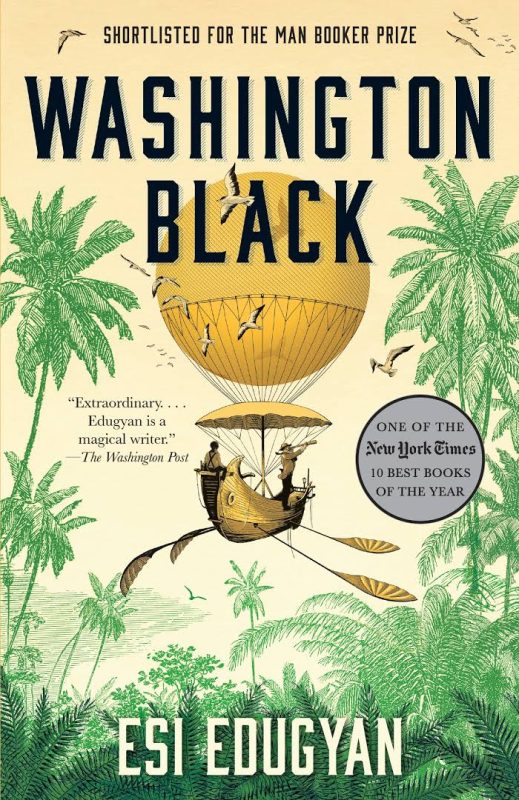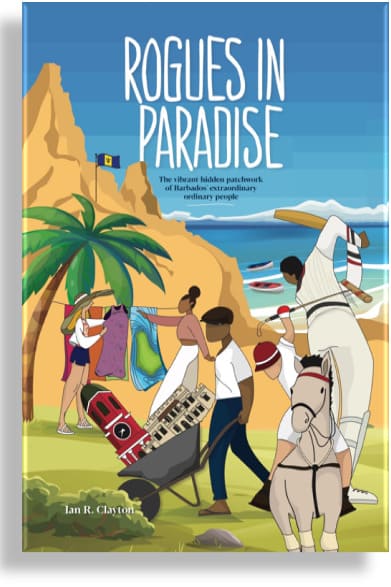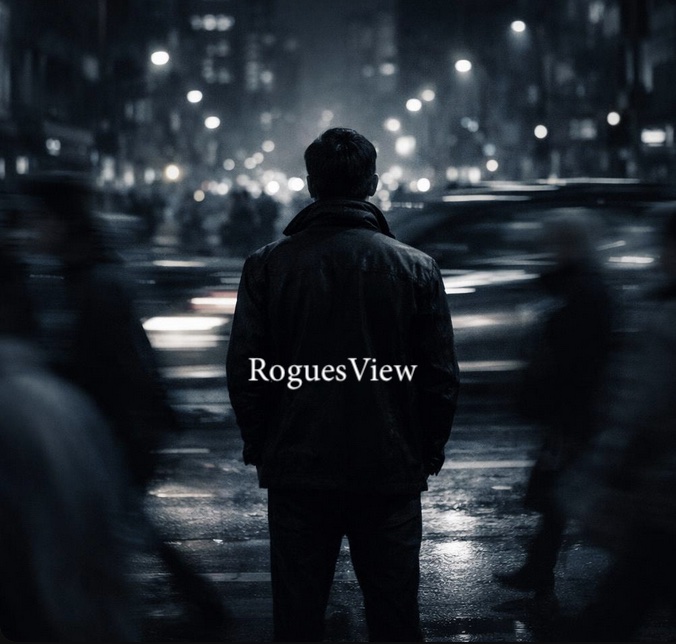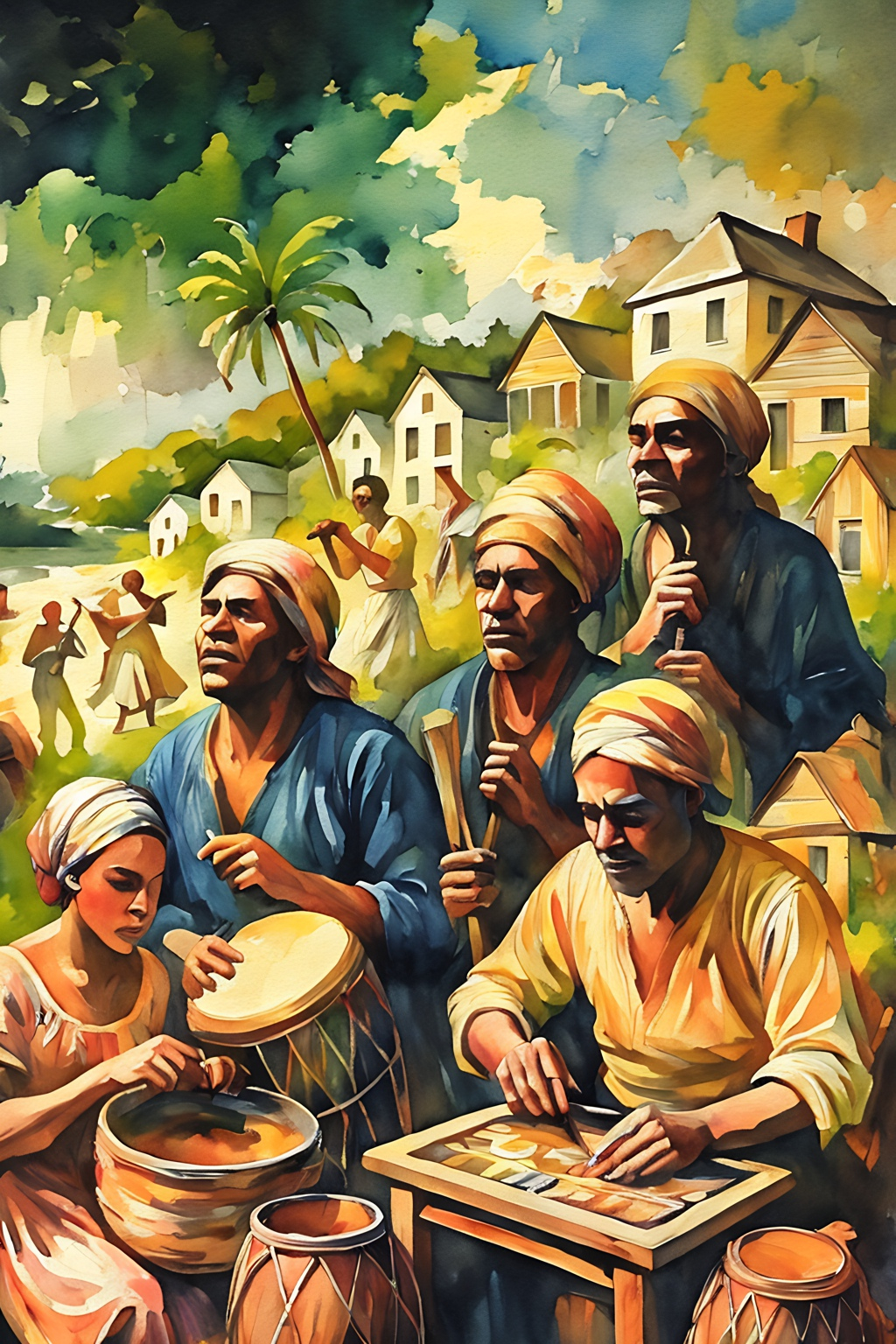The Fiction and the Truth
A small boy floats into the sky in a hot-air balloon, leaving the cane fields of Barbados behind. Below him: the brutal weight of slavery. Ahead: the frozen shores of Halifax and a world of adventure. It’s a breathtaking piece of Disney fiction brought to life in the movie Washington Black—the story of Wash, a boy who dares to rise above bondage.
But the true story of Barbados is even more gripping. Long before Hollywood imagined Wash’s escape, Barbados was the first British slave society — the testing ground of Caribbean slavery. Halifax, too, played a critical role: first as a trading partner in that same system, and later as a refuge for freedom seekers on the Underground Railroad.
That is where Rogues in Paradise steps in. My book tells the true story behind the fiction — the rogues, rebels, and ordinary people of Barbados whose lives helped shape the island’s history and legacy. Rogues in Paradise is rooted in lived history and the real people of Barbados, adding context, history, and character to the imaginative and brilliant fictional story of Wash. It’s a story that resonates far beyond the screen. And for me, it’s personal. I live between Halifax, Nova Scotia, and Barbados, moving between two places tied together by centuries of history — a history that is as real as it is riveting.
Barbados and Halifax: A Historical Connection
Rogues in Paradise is an unofficial companion to Washington Black, revealing the true story of Barbados, set against the fictional adventure of Wash and his hot-air balloon escape from the island to Halifax. As the author of Rogues in Paradise, I find the parallels between Washington Black’s journey and my own experiences in Barbados and Halifax deeply compelling.
People Matter
Caribbean slavery began in Barbados, and Halifax played a critical role in Barbados’ history as a trading hub and a destination for migration to Nova Scotia. The Barbados–Canada connection lives on through many remarkable Canadians of Bajan heritage. From literary voices like Anthony Clarke to musical icons Oliver Jones and Joe Sealy. From Olympic champion Andre De Grasse to cultural leaders like Cameron Bailey. Their influence spans every field. Political milestones also stand out: Leonard Braithwaite, the first Black person elected to a provincial legislature, and Senator Anne Cools, the first Black Canadian appointed to the Senate. Even Barbados’ founding Prime Minister, Errol Barrow, trained in navigation in Nova Scotia, a reminder of how migration has shaped ties that endure in culture, politics, and identity (noted in Chapter 32 of the book).
That’s the real-world foundation. But what about the fiction itself?
About Washington Black
Washington Black is a Disney-owned Hulu original series based on the award-winning novel by Esi Edugyan. It follows the extraordinary journey of George Washington “Wash” Black, an eleven-year-old boy who escapes slavery on a Barbados sugar plantation. His path to freedom begins when he is taken under the wing of his master’s eccentric inventor brother, “Titch,” setting off a globe-spanning adventure. Premiering on July 23, 2025, the series explores powerful themes of identity, resilience, and the meaning of freedom.
From Page to Screen — and to the Past
Esi Edugyan’s award-winning novel brought the 19th-century Caribbean-Canadian connection to life for readers worldwide. Now, the TV adaptation is pulling in new audiences with its sweeping visuals and gripping human drama. See the Podcast for the full story.
While Washington Black is a work of fiction, the migrations it depicts are grounded in fact. After Emancipation in 1834, thousands of Barbadians sought opportunity beyond the island’s shores. Canada, particularly Nova Scotia, was one such destination. They came to work in shipyards, serve in military regiments, study in classrooms, and build new lives. These journeys were not without hardship, but they shaped communities on both sides of the Atlantic. The echoes of those crossings are still heard today in accents, traditions, and family ties that stretch from Bridgetown to Halifax.
The Rogues Introduction to the Black Experience pays homage to Bajans who left and became honourable Canadian citizens and personalities. It’s part of the story of the Black Experience, which is very relevant to the story of Washington Black.
The Black Experience in Colonial Days
This section of Rogues in Paradise explores the reality that is often silenced. Barbados’ official histories and archives hold little of it, not by accident, but because the colonisers wrote history. What survived are fragments, scattered in folklore, oral traditions, and whispers of memory. The British chronicled their triumphs, commerce, and society; they shaped the narrative taught in schools and passed into popular imagination. The lived realities of the enslaved — their hopes, fears, dreams and passions, faded into a forgotten past, like the lost treasures of paradise.
Fiction Lives Where History Vanished
Yet writers have sometimes succeeded where archives failed. Esi Edugyan, in Washington Black, ferreted out deeply felt memories from the faintest traces, reconstructing emotional truths from records that barely existed. Her fiction breathes life into experiences that the historical record tried to erase.
Rogues in Paradise takes a different path — not fiction but a creative chronicle grounded in real encounters, oral memory, and lived culture. It seeks to recover voices that have been absent from the record, revealing how ordinary people resisted, endured, and redefined themselves in the shadow of slavery and empire.
Rogues in Paradise — True Stories of Barbados slavery
In my book, Rogues in Paradise, I dig into these histories through the people who lived them — rogues, rebels, and everyday visionaries whose courage and humour redefined what it meant to be free.
As I explore more fully in Chapter 32 of the book, “Freedom’s Hollow Echo: Canada, the Next Horizon,” tells the story of the Bajan exodus to Canada in the years following the end of slavery. Barbados had a skilled, educated population, but the island’s colonial economy left few opportunities. Canada represented a promised land, though often, that promise came with the shadows of prejudice and inequality.
These accounts are not born of pure invention but drawn from the lived experiences of those who crossed oceans and cultures, carrying with them the resilience of their heritage. In the absence of reliable chronicles, writers must dig deep for inspiration and fragments of truth. The search often raises more questions than answers, but it is enquiry itself that becomes the master of the story.
Why It Matters Now
The shadows of slavery continue to shape our culture and identity—now is the moment to listen, learn, and reclaim these stories.
Stories like Washington Black open the door to deeper conversations about identity, belonging, and the legacies of colonialism. But history doesn’t just live in novels or TV series. It breathes in the music, the language, the laughter, and the lives of people who keep these connections alive every day.
The Caribbean-Canadian story is one of resilience, creativity, and enduring bonds. It’s a shared heritage that deserves to be remembered — and celebrated — not only when the spotlight is on, but always.
As Washington Black captures the world’s attention, I invite you to explore the real people and histories that inspired and extend beyond it. Rogues in Paradise offers an unflinching, often joyous portrait of Barbados and its links to Canada — past, present, and future.
Grab your free sample chapter here>>>
PODCAST Blogs & Resources
- Washington Black Meets the Real Barbados
- Podcasts Shift to Video: Amazon Says Listen-Only is Broken
- RoguesCulture Rebel Soul Music Podcast – episode #2
- RoguesCulture-The Punk Rebellion
- RoguesCulture Music Rebels
- RogueCulture – Podcasts Rising!
- RogueCulture Asks What Is a Podcast Anymore
- Molten Memories: The Animated Podcast Experience
- Molten Memories- Rogues Culture Podcast 2
- RoguesCulture -The History Of Podcasting
- Podcast Marketing Strategies Added
- Rogues Hybrid Podcast Animated Video
- Overview Rogues Podcast 1 Script
Appendix: for a Deep Dive
Executive Summary
From Washington Black to Rogues in Paradise:
Barbados, Canada, and the Stories That Bind Them
The world’s eyes are on Barbados again. With Washington Black now streaming to glowing reviews, audiences are meeting a fictional boy whose escape from slavery takes him from the cane fields of Barbados to the icy winds of the Canadian Maritimes, embarking on a wild adventure around the world.
Barbados’ story extends far beyond any movie. And for me, it’s personal. I live between Halifax, Nova Scotia, and Barbados, moving between two places tied together by centuries of history — a history that is as real as it is riveting.
Keywords: Barbados, Halifax, slavery, emancipation, Washington Black, Rogues in Paradise, Esi Edugyan, Caribbean migration, Black experience, cultural memory
Author’s Note: This blog explores the real-life histories behind *Washington Black* and how they connect to my book *Rogues in Paradise*. My aim is to reveal the cultural, historical, and human threads that connect Barbados and Halifax through stories of survival, creativity, and identity.
Questions for Exploration:
- How does fiction (Washington Black) complement or challenge nonfiction (Rogues in Paradise)?
- What parallels exist between the fictional journey of Wash and the real migration of Bajans to Canada?
- How did Barbados shape early slavery systems, and how did Halifax feature in resistance and refuge?
- Why do these stories matter today in conversations on race, identity, and belonging?










